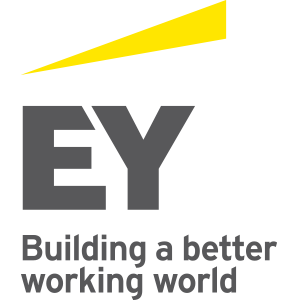You have a full-time job that provides you with a stable income and probably several fringe benefits such as paid vacations, health insurance, sick leave and possibly a 401(k). You also have a great idea for a product or service, long to be your own boss and are unhappy with the limited time you can devote to your fledgling company. You know that sooner or later, you will need to quit your day job and devote yourself full time to your startup. The issue lies in knowing when it is time to turn in your resignation and throw yourself completely into your own business. The answers to the next couple of questions can help you decide whether it is the right time to make the transition.
-
- How Dependent are You on the Income from Your Job?
If you rely on the income from your job to pay rent, buy groceries and cover your other personal expenses, you may not be ready to quit just yet. On the other hand, if your spouse or partner has the means and willingness to cover all of the household expenses, you have more flexibility in your timing. - What is the Balance in Your Savings Account?
If you have saved little or no money, you might want to postpone your departure from your day job. It is not uncommon for a startup to show a loss or at best break even for the first few months. Your savings will need to cover any shortfalls in your personal expenses as well as keep your business going. - Does Your Spouse or Partner Support the Transition?
Launching a business can play havoc with your personal relationships. You will be working longer hours, trimming your budget and dealing with increased stress. If you are single like me, all of this may be a non-issue. However, if you are in a committed relationship, it is best to have the full support of your spouse or partner to protect the relationship and reduce the possibility that he or she could inadvertently undermine your efforts. - Do You Have a Realistic Plan?
A brilliant idea is great, but your ability to execute it is critical. You need to prepare with a plan that includes realistic sales projections as well as realistic budgets for expenses. This will be essential if you need to seek financing or investors for your business, but it also serves to help you monitor your progress and keep your business on track.
Working through the Business Model Canvas is another great place to start. It can help you answer key questions within your company in order to have a clear picture of your costs, value proposition, and pricing strategy. It is one of the keystones of WaVE’s overall startup values. - Can You Think of Creative Ways to Supplement Your Business Profits?
If you need to, can you barter your services or products for things you need? For example, a startup marketing company might trade its services for office space. Are there related services you could offer, such as preventive maintenance contracts on equipment you sell? Also, think twice before you offer equity in your company in exchange for goods or services your company needs. It could just muddy the waters. - What are Your Options if Your Business does not Meet Your Expectations?
If it takes longer than anticipated for your business to start turning a substantial enough profit to pay yourself a salary, what are your options? How easily could you find part-time work or a full-time job if you must? Can you think of potential partners who could provide the influx of capital that you need? “Hope for the best but plan for the worst,” is the rule to live by when beginning your startup. - How Excited are You about Your Startup?
You will need enthusiasm and energy to keep you going. There will be days when it seems that nothing goes right. Unless you believe in your company — and yourself — you could become discouraged. If you are excited about your startup, you will be less likely to feel disheartened and more likely to display a contagious enthusiasm. At WaVE we put things on a scale from one to Akira. Whether it’s the income potential or job itself, you should be pretty close to an Akira level of enthusiasm for your startup before you quit your day job. - Has Your Startup Reached the Stage Requiring Your Full-Time Commitment?
The possibility exists that your startup may not be able to survive without your full-time participation. Perhaps you need to secure funding, but investors are demanding that you commit all of your time to your business. You may need to hire employees, but find that the best candidates are reluctant to work for a part-time boss. Maybe the demand for your services far outstrips your ability to service clients on a part-time basis. Any of these scenarios could indicate that it is time for you to take the plunge.
- How Dependent are You on the Income from Your Job?
What to do . . .
If you want your startup to succeed, you will eventually need to devote yourself to it on a full-time basis. If you can quit your day job, do it; part-time entrepreneurs have a dismal success rate over the long haul. Just make sure that the time is right — and try not to burn any bridges behind you. You might also consider joining an accelerator such as Tampa Bay Wave to have a support network and hands-on mentors to help you succeed.


























